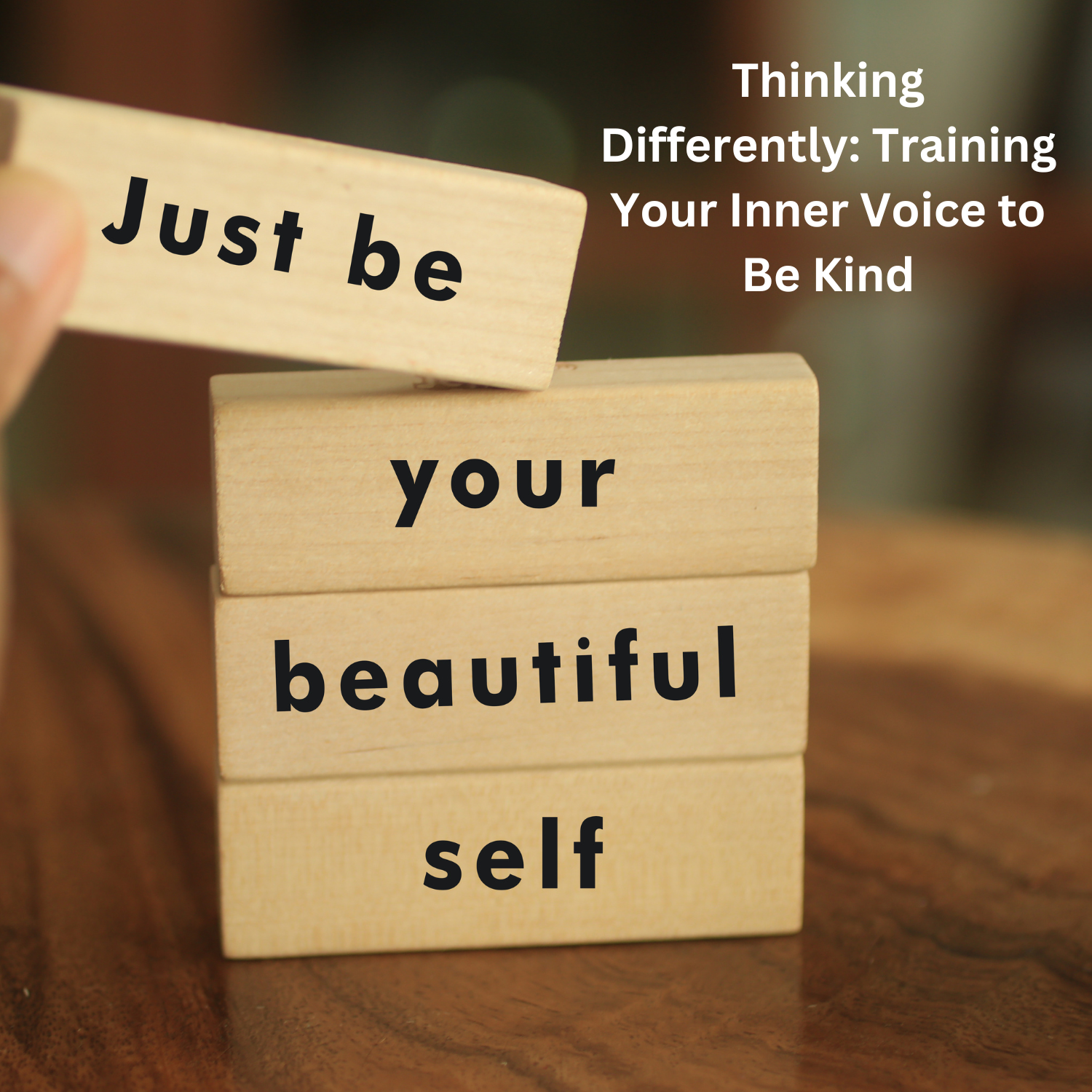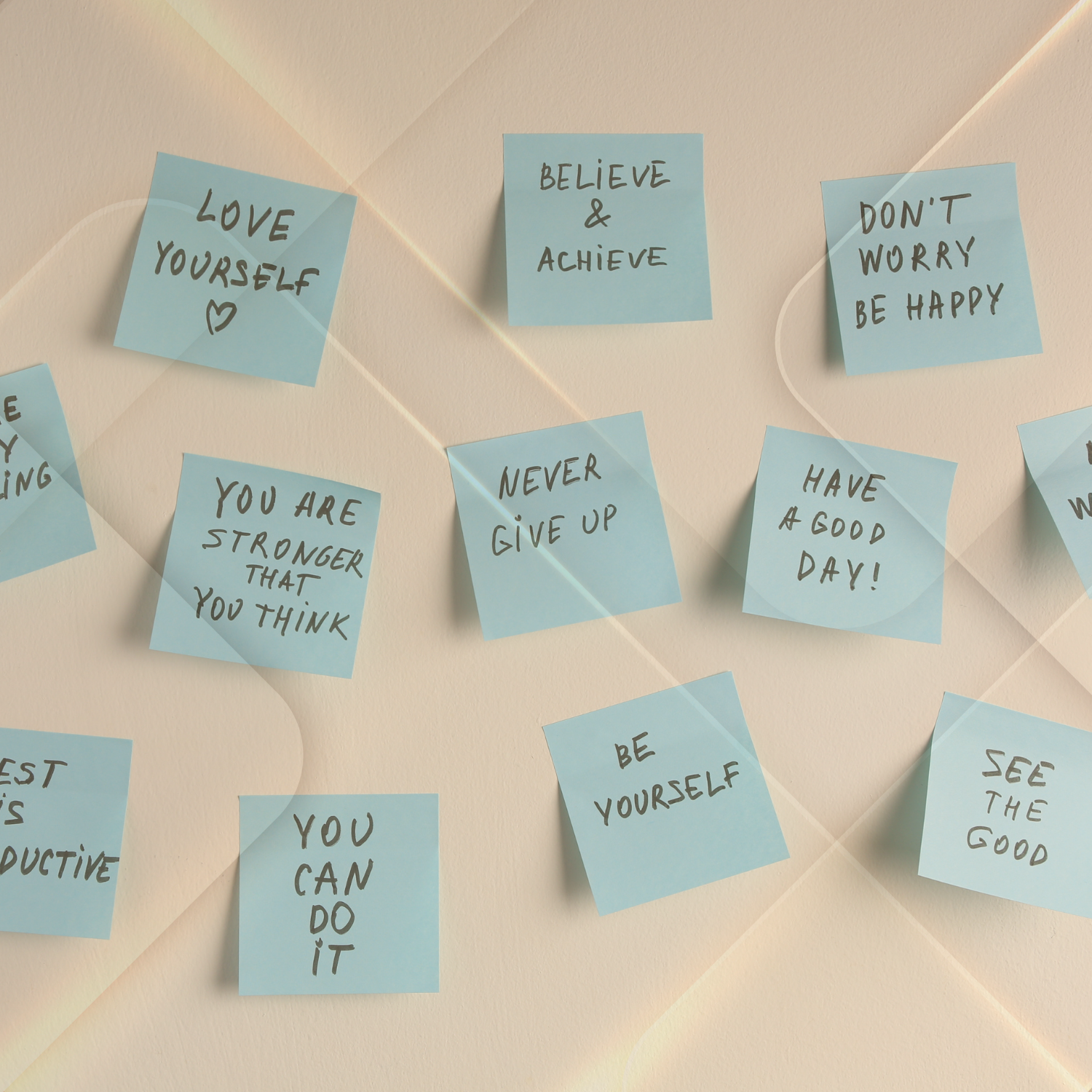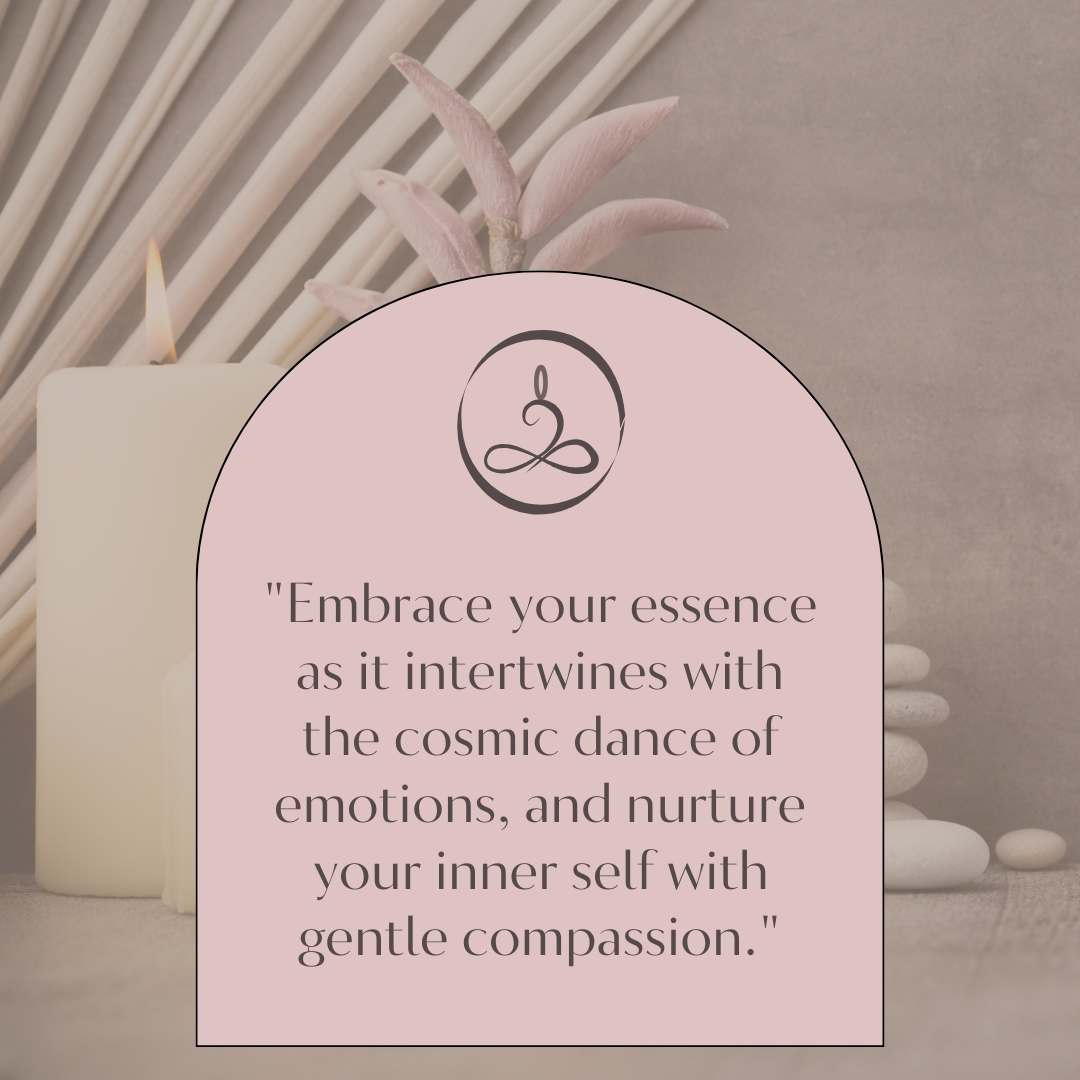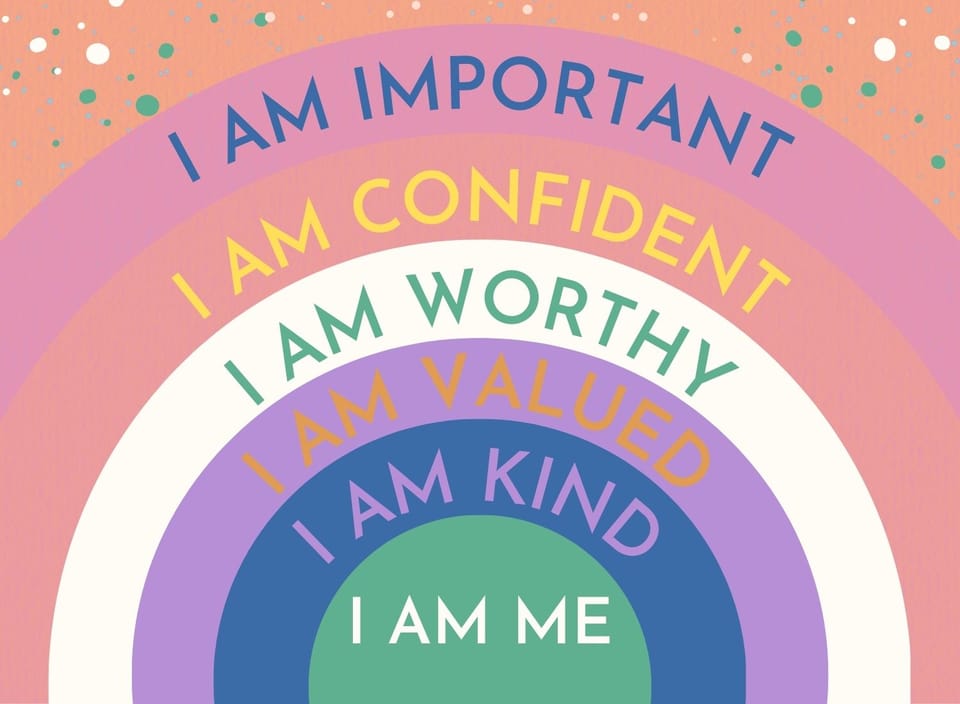Thinking Differently: Training Your Inner Voice to Be Kind

If you’ve ever looked in the mirror and thought, “Wow, I am just not cut out for this”—whether “this” is life, work, relationships, or just finding the lid to your Tupperware—then welcome. This journey to building a kind, encouraging inner voice is for you. We’ve all had moments where our inner monologue sounds more like a grumpy critic than a supportive friend, but here’s the secret: it doesn’t have to stay that way. With some intention and a dash of humor, you can start training your inner voice to cheer you on, not tear you down.
This article will dive into how to shift your inner dialogue from critical to compassionate in six practical, relatable steps. Each section is here to remind you that kindness doesn’t have to be serious or complicated; it can be as playful and rewarding as telling your inner critic to take a chill pill (spoiler: you will be doing exactly that). Ready to flip the script? Let’s get into it.
1. Identify Negative Patterns (a.k.a., Meet the Resident Grump)
The first step to a kinder inner voice is meeting that not-so-kind inner voice that already lives in your head rent-free. You know the one—the voice that says things like, “Oh, you messed up again?” or “Nice job…not.” Identifying these patterns is like finally spotting the grumpy cat who’s been scratching up your confidence.
Negative patterns don’t usually start out loud and clear—they’re often sneaky little whispers. For example, maybe you’re about to try a new hobby, and a small, doubtful voice says, “Are you sure you’re any good at this?” Over time, these whispers can become louder, turning into the background music of your mind.
The trick here is not to engage with the negative thoughts or beat yourself up for having them. Just observe them like you’re watching a (surprisingly judgmental) TV show. Notice when and how your inner critic tends to pipe up. Is it when you’re at work? Trying something new? Talking to someone intimidating? Whatever it is, jot down a few examples, and take note of how you usually respond. Spoiler alert: most of us don’t respond kindly.
Once you start noticing these thoughts, you might be surprised at how often they show up. But the good news is, they’re just habits—like accidentally saying “you too” when the waiter tells you to enjoy your meal. And habits can be changed.
Pro Tip: Think of your inner critic as a quirky character in a sitcom. Give it a funny name, maybe something like “Naggy Ned” or “Sassy Sandra.” Every time they pop up, you can laugh a little and remind yourself that you’re in control of the show.
2. Practice Compassionate Self-Talk (It’s Like Talking to a Puppy)
Here’s where you put on your “kind friend” hat. Compassionate self-talk is all about treating yourself as you would a friend, or maybe even a puppy, if you’re one of those people who talk to animals like they’re tiny humans. Instead of immediately going into “ugh, I messed up” mode, try saying things like, “Hey, I’m just figuring it out, and that’s okay.”
Now, if this feels awkward at first, that’s because it is. But awkward doesn’t mean ineffective. It just means you’re trying something new! Think of it as the mental equivalent of switching from watching TV on the couch to doing yoga in the living room—it takes a bit to get comfortable, but your mind (like your muscles) will eventually thank you.
Here’s a little exercise: think of your best friend or someone you genuinely love. Imagine they come to you with the same doubts you’re facing. What would you say? Chances are, you wouldn’t tell them, “Yeah, you’re right, you probably can’t do it.” You’d encourage them, right? Maybe even point out their strengths or remind them of past successes. Try doing that with yourself. After all, you’re the longest friend you’ll ever have!
Pro Tip: When you feel like being compassionate is hard, imagine you’re talking to a kid who’s still learning the ropes. This perspective can make it easier to approach yourself with gentleness, and it’s a fun mental trick that adds a dash of playfulness.

3. Challenge Automatic Thoughts (Tell Your Inner Critic to Chill)
Automatic thoughts are the mental equivalent of pop-up ads. They just show up, uninvited, often with very little basis in reality. The next time a thought like, “I’m not good enough for this” or “This will never work out” flashes across your mind, hit the mental “pause” button and ask: “Who invited you?”
When we allow these automatic thoughts to run unchecked, they start to feel like facts, even if they’re more like overly dramatic opinions. The key is to look at these thoughts like a detective: “Is this really true?” You might notice that a lot of them are based on assumptions or past experiences that don’t actually apply to your current situation.
Here’s a fun exercise to help: picture your inner critic as a caricature—a snooty art critic, an exaggerated teacher, or maybe even an overdramatic villain twirling a mustache. Give them a funny name if you’d like (something like “Doubtful Dan” or “Critical Cathy”), and every time they show up, imagine them sitting across from you, raising their eyebrow with skepticism.
You could even respond with something like, “Oh, hi, Cathy, thanks for your input, but I’m good.” Reframing your automatic thoughts as a melodramatic performance makes them a lot easier to laugh at and, eventually, let go.
Pro Tip: When challenging thoughts, try thinking, “Is this thought helpful?” This question bypasses the need for everything to be “true” and instead focuses on whether or not it serves you. If it doesn’t, you can decide it’s not worth keeping around.
4. Celebrate Small Wins (Yes, Even Finding the TV Remote Counts)
Celebrating small wins might feel silly at first, but the payoff is worth it. Think of it as giving yourself high-fives for every little thing that goes right—even the “I didn’t burn the toast today” kind of things. These moments add up, and they help reinforce that your inner voice is here to cheer you on, not point out where you slipped up.
The beauty of celebrating small wins is that it starts shifting your focus to the positives in life, no matter how tiny. And when you start focusing on the positives, guess what? Your brain starts noticing more of them. It’s like training yourself to see the bright side, one small celebration at a time.
For a little extra fun, create a “small wins” list each day, with things you’re proud of, no matter how minor they might seem. And remember, your inner critic has no place in this exercise. This is your list, and you get to set the rules!
Pro Tip: Keep a “Win Jar” where you write down small victories and throw them in. When you’re feeling down, pull one out and remind yourself of what you’ve accomplished.
5. Build Self-Awareness (Get to Know Your Inner Thought DJ)
Self-awareness is like getting to know the DJ in your mind who keeps playing the same old sad tunes. The more you understand what triggers your inner critic or why certain situations make you feel insecure, the better you’ll be at swapping out those tunes for something a bit more upbeat.
Building self-awareness is really just the practice of checking in with yourself. When you notice your inner voice slipping into critique mode, ask, “What’s actually going on here?” Maybe you’re tired, stressed, or just trying to do too many things at once. Self-awareness isn’t about blaming yourself; it’s about creating a little distance so you can see the big picture.
One helpful trick is to set aside a few minutes each day to reflect on your thoughts, especially if you catch yourself in a self-critical spiral. You could journal, meditate, or even take a walk. Whatever helps you tune into your thoughts without judging them. Over time, you’ll get better at spotting patterns and giving your inner critic a break.
Pro Tip: Think of self-awareness as having a “thought diary.” Each entry isn’t about solving or fixing, just observing. Like jotting down what the DJ is playing—it helps you notice the “tunes” you’d rather skip.
6. Use Affirmations with Intention (Make Them Yours)
Affirmations can feel a bit like putting on clothes that don’t quite fit—unless you tailor them to yourself. Instead of repeating generic phrases like “I am worthy” or “I am amazing,” think about what specific qualities or goals resonate with you. If “I’m growing a little every day” feels more authentic than “I am enough,” go with that.
Consider writing your affirmations down and keeping them somewhere you’ll see them—a sticky note on your computer, a reminder on your phone, or even as little notes in your wallet. Whenever you notice your inner critic rearing up, pull out one of these reminders and say it to yourself. It doesn’t have to be overly serious; it just needs to be true to you.
You can also make affirmations more effective by linking them to things you enjoy. If you’re a nature lover, try affirmations like, “I am grounded like a tree” or “I flow like a river.” These personal touches make affirmations more powerful and help them resonate with your sense of self.
Pro Tip: Don’t be afraid to get playful! You could say things like, “I am as resilient as my cactus” or “I bounce back like my morning coffee,” adding some humor that makes affirmations feel less like a chore.
Conclusion: Practicing Kindness to Yourself
Learning to be kind to yourself takes practice, but the journey is well worth it. You’re slowly replacing the voice of doubt with a voice that cheers you on and helps you grow, flaws and all. Through compassion, humor, self-awareness, and celebrating small wins, you’re building a more resilient, gentle approach to your inner life.
Remember, self-compassion isn’t about ignoring mistakes or pretending everything is perfect. It’s about acknowledging that, like everyone else, you’re just doing your best. Give yourself a little room to make mistakes, to laugh, and to grow at your own pace. And if that inner critic tries to get the last word? Politely tell them, “Not today.”
So here’s to rewiring your inner voice to be your biggest cheerleader, one step at a time. Because if anyone deserves kindness, it’s you.




